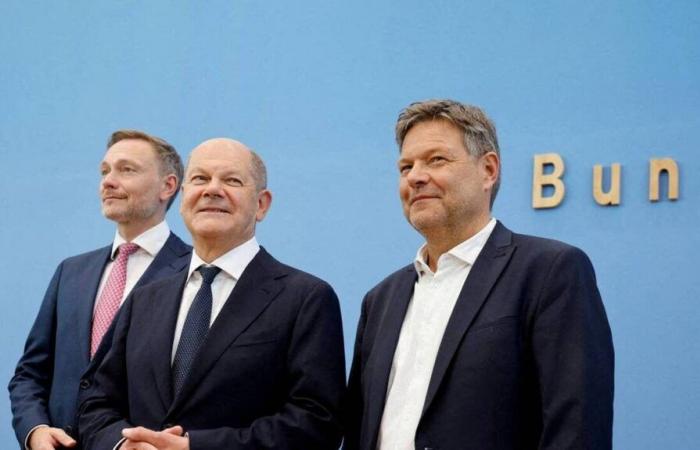We knew that it was an alliance of parties that were very ideologically opposed. This Wednesday, November 6, the so-called “traffic light” coalition (red for the social democrats of the SPD, yellow for the liberals and green for the ecologists) ended up exploding after almost three years of existence. The three leaders of this coalition Olaf Scholz (SPD), Christian Lindner (liberals) and the ecologist Robert Habeck did not manage to find an agreement on the budget. However, they legally have to do it before Friday.
Read also: Is Germany once again the “sick man of Europe”?
A situation largely due to Christian Lindner who wanted to force his left-wing partners to accept measures to cut social spending and the most ecological programs. Despite polls which project them at only 3% in the event of an early election, the liberals of the FDP are convinced that the economic climate at half mast across the Rhine is favorable to them.
Scholz dismisses liberal leader
This is not at all the case for the SPD and the Greens, who are promised results that are very far from those of the 2021 election. The conservatives (CDU and CSU) could take back the chancellery. The latest regional elections in the former East Germany also promise a good score for the far-right of the AfD and a little less than 10% for the anti-migrant radical left led by Sahra Wagenknecht. The economic crisis in Germany is favorable to these populist parties, especially with the recent announcements of the elimination of hundreds of thousands of jobs in the automobile sector (Audi, Volkswagen).
Lindner ended up formalizing the divorce, proposing to approve the budget for 2024 and to support an interim government until new elections at the beginning of 2025. An option refused by Olaf Scholz who immediately dismissed Lindner.
France
World






